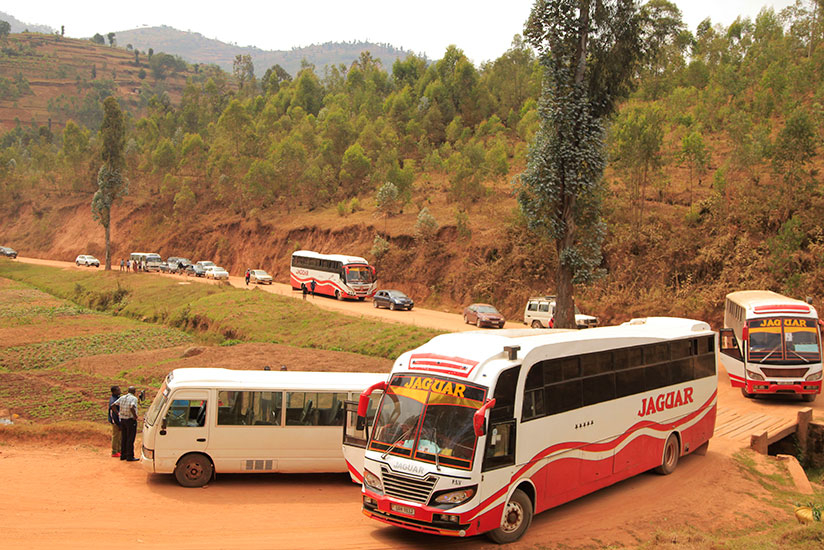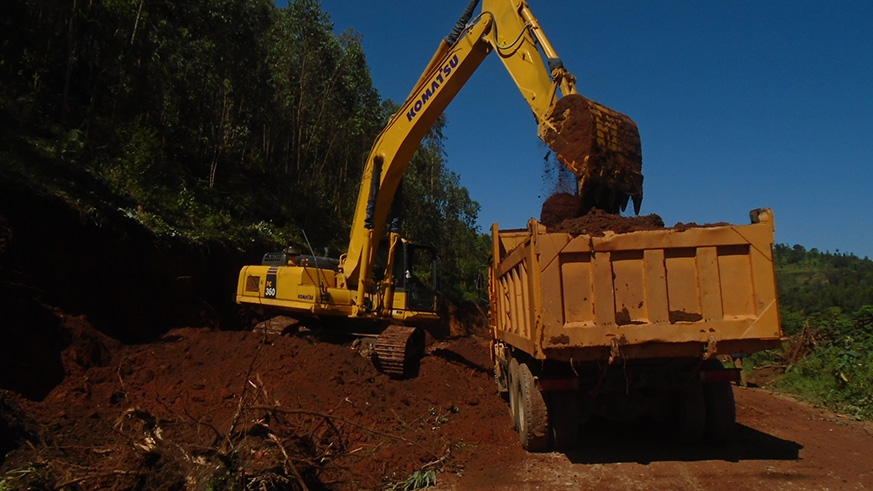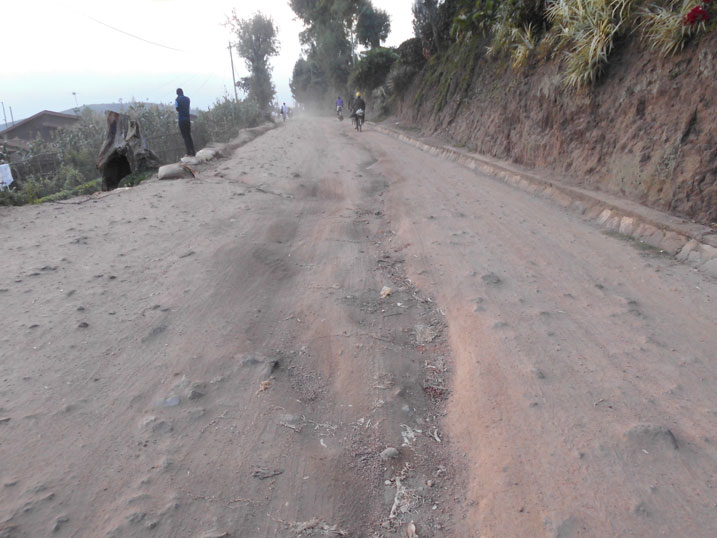
Opinion
07:39, 20-Apr-2019
My story: Rwanda's Holy Land unlocked through the BRI
Updated
21:14, 21-Apr-2019
Frederic Byumvuhore

Editor's Note: The second Belt and Road Forum for International Cooperation will be held in Beijing at the end of this month. Over the past six years, we have heard many voices – mostly political and economic ones – speak about the BRI. But we wanted to also hear from ordinary people who have experienced BRI for themselves. Over 100 people took part in our "CGTN Belt and Road Essay Contest," and we selected the 18 best stories. Here is an essay of one of our second-prize winners. The article reflects the author's opinions and not necessarily the views of CGTN.
A couple of years back, Kibeho remained undeveloped despite the multitude of pilgrims who flock there for religious celebrations every year from around the world.
Known as a religious tourism site, Kibeho Village is located in the Nyaruguru District in the southern province of Rwanda. The place receives nearly 600,000 pilgrims every year.
Due to movement complications, the place was for a long time left sequestered, lacking the ability to attract investors to discover its opportunities. This led to insufficient lodging for visitors, hotels, and modern markets, among other primary needs.

Every year nearly 600,000 pilgrims across the world take roads to Kibeho to celebrate Assumption Day. Drivers raise mechanical problems and in rainy season, the road becomes impassable. /Courtesy of Frederic Byumvuhore
Every year nearly 600,000 pilgrims across the world take roads to Kibeho to celebrate Assumption Day. Drivers raise mechanical problems and in rainy season, the road becomes impassable. /Courtesy of Frederic Byumvuhore
The news about constructing the road was impressive and brought much praise among Rwandans following the bilateral agreement between the government of Rwanda and China as part of Chinese Belt and Road Initiative (BRI). The agreement was signed last year during the historic visit by Chinese President Xi Jinping to Rwanda.
Rwanda is the country that faced a dark past during the 1994 genocide against the Tutsi, but now it strives for a bright future and self-reliance. The country is one of the fastest-growing economies in Africa. The country is also working hard to be the business and technological hub on the continent. The Chinese BRI comes as a solution to make all these plans and visions happen in the country of a thousand hills.
Under the Initiative, the country's tallest buildings are in place, schools and hospitals have also been built across the country to boost education and ensure the good health of citizens.
Rwanda is a landlocked country but it has numerous opportunities in tourism, business, cultural promotion, and commerce, among others. Roads are the only possible way to unlock these opportunities and the BRI pushes the sustainable progress of the country. The Initiative has obviously brought changes to Rwanda in terms of job creation, ensuring prosperity and harmonizing movement of people and goods.

The construction of a 66-km-long road started this year. /Courtesy of Frederic Byumvuhore.
The construction of a 66-km-long road started this year. /Courtesy of Frederic Byumvuhore.
To the Rwandan community, China's BRI might have many definitions since everyone has their own words to describe the effort. Government officials, private sectors, non-government institutions, farmers, traders, and students are all likely to respond in their own way on its advantages.
The construction of the 66-km-long Huye-Nyaruguru road saw immediate advancements and opportunities created. Many Rwandans are employed and more kiosks and shops started in the villages ready to benefit from the highly anticipated facility. The development has unlocked the potential of food production in the area.
The BRI boosts trade among local people. A majority of Rwandans live in farming communities and the facilities under the Initiative will enable them to effectively supply their produce to Kigali City. Previously, some would end up consuming the produce themselves due to the lack of opportunity to transport to the market.

Despite of its great potentiality, Kibeho was still locked due to the lack of upgraded road to ease movements of people. The BRI has brought hope. /Courtesy of Frederic Byumvuhore.
Despite of its great potentiality, Kibeho was still locked due to the lack of upgraded road to ease movements of people. The BRI has brought hope. /Courtesy of Frederic Byumvuhore.
Mainly, through the Initiative, Rwandans ensure their prosperity. Job opportunities are in place for all people. It all started when jobless youths were employed during the inception of road construction activities, leading to the improvement of people's welfare.
To get where it is today, China has overcome numerous socio-economic hardships but its unique system has allowed it to become one of the world's super powers. Thus, China is lending hands to other countries across the world. The entire world should take the BRI as a hydration pipe coming to water the growth of the globe. The world has much to learn from China and no country should overlook the BRI.
Appreciations towards the BRI are unlimited. It's not just the Rwandan community that benefits from the route but also neighboring countries.
The initiative stands as a backbone to the sustainable development of the country in all domains. It also enhances people-to-people relationship. Rwandans and Chinese people are now in good relationship. They share many things in common and many Rwandans are learning the Chinese language to make communication easier.
More new modern roads are increasing in the city of Kigali and the countryside under China's BRI. The government is accelerating the development with infrastructure. The BRI impetus shows prosperity and transformation toward sustainable development and the self-reliance of Rwandans.
(The author is a reporter from Rwanda. If you want to contribute and have specific expertise, please contact us at opinions@cgtn.com.)

SITEMAP
Copyright © 2018 CGTN. Beijing ICP prepared NO.16065310-3
Copyright © 2018 CGTN. Beijing ICP prepared NO.16065310-3